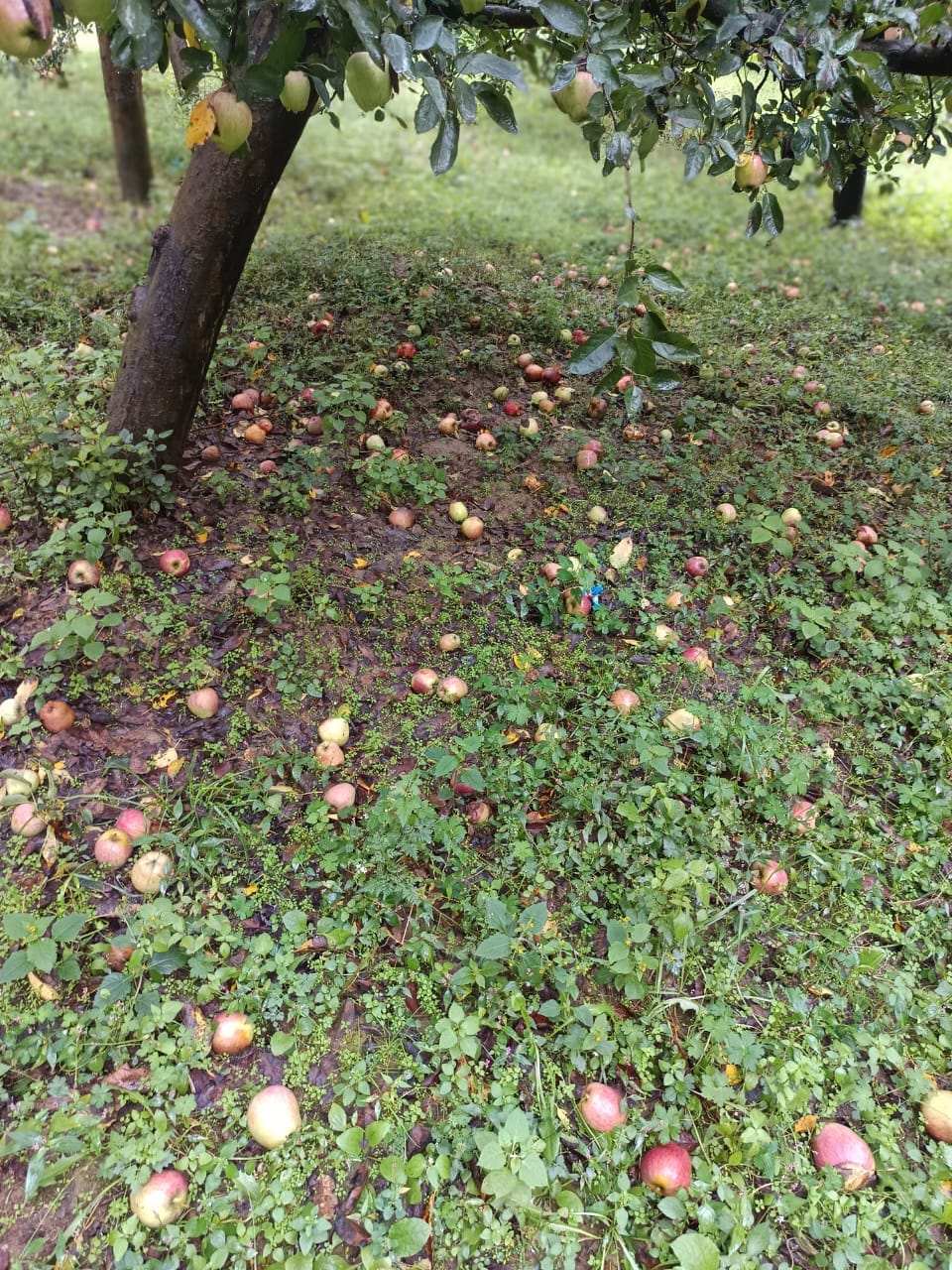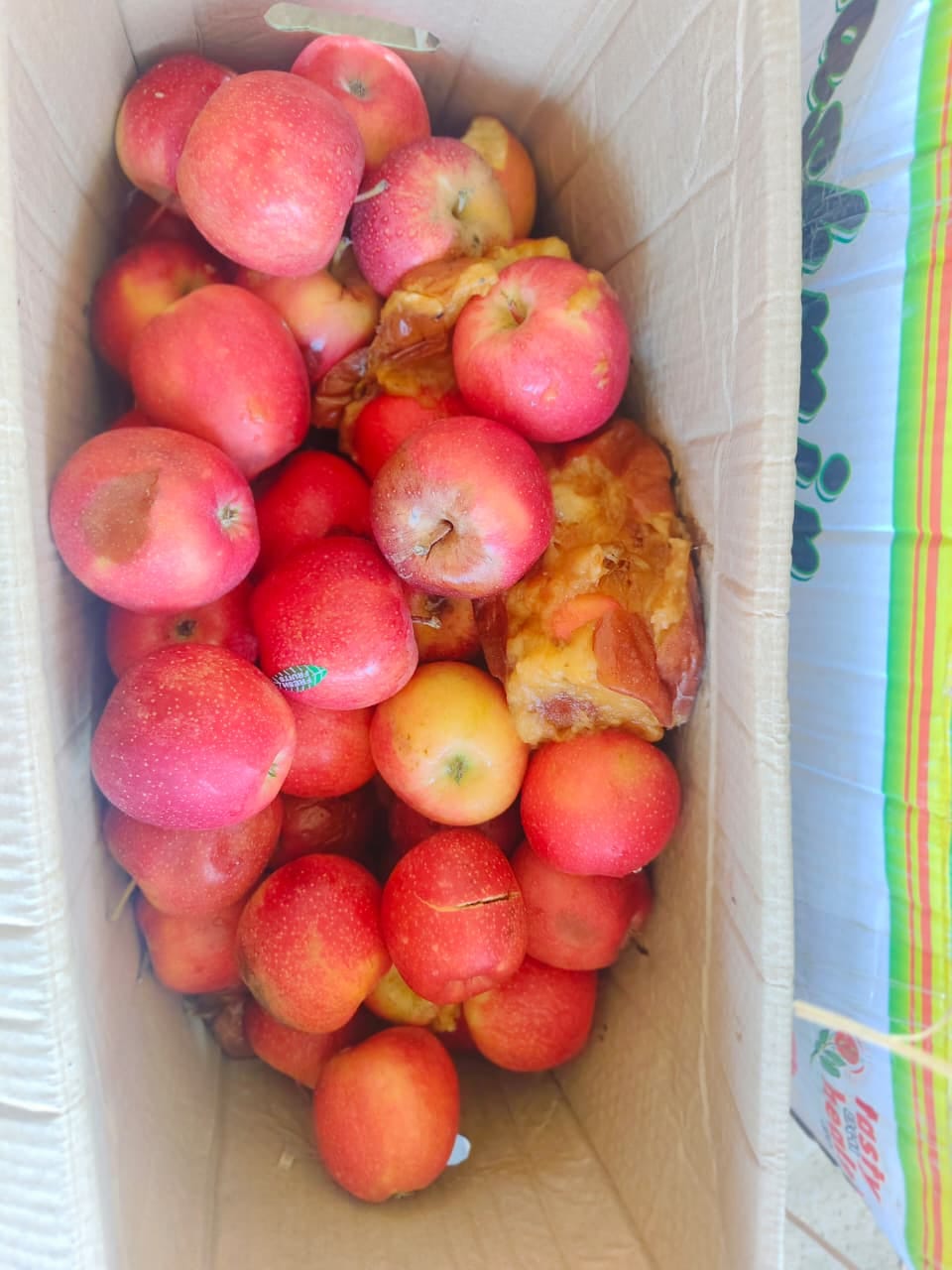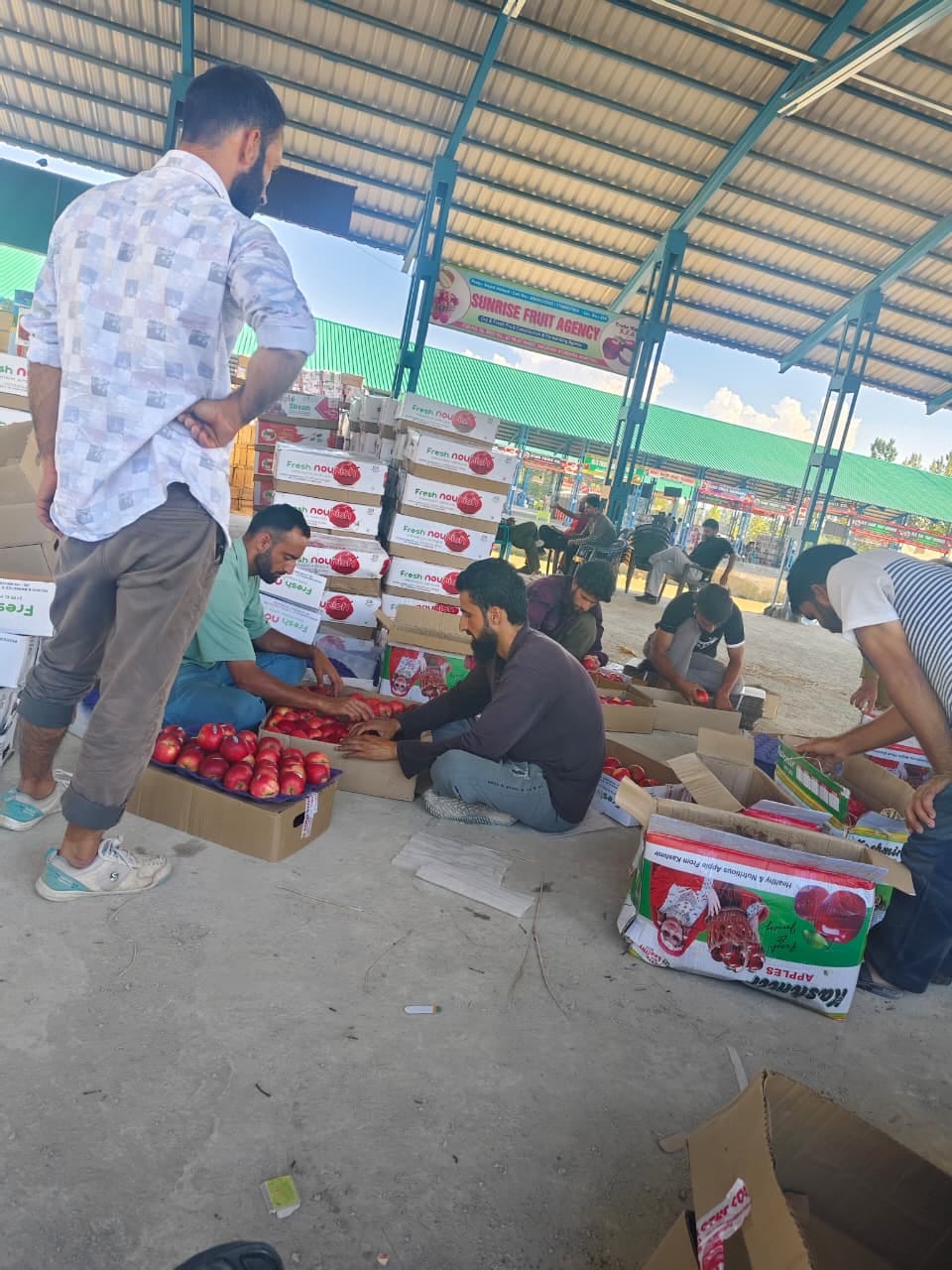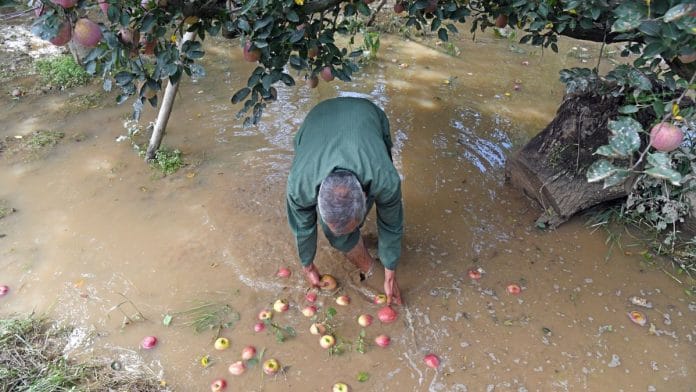New Delhi: On 4 September morning, apple growers in south Kashmir’s Pulwama woke up to knee-deep water in their orchards, ripe apples scattered all over, and fully grown trees uprooted.
The tragedy struck the Valley just at peak harvest season, with apples just ready to be picked and transported to markets across the country. Days of relentless rain, flooding in low-lying orchards, and landslides on the Jammu-Srinagar highway have combined to devastate Kashmir’s horticulture, the backbone of its economy.
According to the Kashmir Fruit Growers’ Association, losses this season could run up to Rs 150–200 crore, affecting nearly seven lakh growers. “This is a natural calamity,” said Basheer Ahmed Basheer, president of the association. “Our goods are either stuck in orchards or markets, or are rotting in trucks. Apples should reach the market within four to five days. If they don’t, they become over ripe and rot. That is the reality.”
 Apples that were not ready are scattered in orchards in Pulwama | By special arrangement
Apples that were not ready are scattered in orchards in Pulwama | By special arrangement
Sheikh Zakir, a grower and trader from Pulwama’s Chersoo village, had been looking forward to one of his best harvests in years. Now he, like many other farmers, is left with rotting apples.
“This was our best crop in the last decade,” he said. “The fruits were flawless, no defects at all. But the water came at night when people were sleeping. In the morning, we saw knee-deep water in the orchards. Around 70 percent of ‘Kullu Delicious’ apples had fallen. The trees were uprooted.”
Zakir estimates his family invested nearly Rs 20 lakh in maintaining their orchards this year. “What was supposed to sell at Rs 1,100 or 1,200 a box will now be sold at Rs 200. People are panicking,” he said.
Highway closures choke trade
Apple growers are now struggling to take whatever is left to markets. The Srinagar-Jammu national highway, the valley’s only all-weather surface link to the rest of India, has been closed repeatedly since late August due to landslides and shooting stones. Trucks loaded with fruit have been stuck for days, with drivers forced to unload rotting stock by the roadside.
Meanwhile, the only route open is the Mughal Road, where six-wheeled small trucks can pass, carrying fruit only as far as Jammu,” farmers explained.
“Since yesterday, at least 15-20 vehicles had to be unloaded and repacked,” said Zakir. “Juice was dripping from the boxes. When fruit stays on the road for four to five days, it is gone.”

Echoing the concern of thousands of fruit growers, Basheer added that the National Highway 44 has been closed for nearly 10 days. “Small six-wheel trucks can still go via Mughal Road to Delhi, but large vehicles carrying 1,200 boxes each, bound for Mumbai, Kolkata, Chennai and even Bangladesh, are stuck. Every day of delay means more losses.”
In a post shared on microblogging site X, former chief minister Mehbooba Mufti urged the union government to step in with emergency transport measures as the closure of roads has left hundreds of fruit-laden vehicles stranded, resulting in “inevitable losses”.
“I appeal to the Union Railway minister @AshwiniVaishnaw to introduce a dedicated train service between the Valley and Delhi to mitigate the challenges faced by the growers. Such a measure would bring much needed relief to everyone involved in the trade. @RailMinIndia”
Fruit growers have been facing severe financial losses every year due to the closure of NH 44. Unfortunately this year the road has once again been closed leaving hundreds of fruit laden vehicles stranded resulting in inevitable losses.
I appeal to the Union Railway minister…
— Mehbooba Mufti (@MehboobaMufti) September 2, 2025
An irreversible loss
The orchards too have taken a hit, Apple trees that usually grow for 12 years before bearing fruit have been uprooted. “Thousands of trees have been uprooted across Pulwama and Kulgam. A big tree can yield 50 boxes, while a young tree barely gives one or two. Losing them is not just this year’s loss, it is a loss for decades,” Zakir explained.
The waterlogging of orchards, Zakir explained, will result in the weakening of trees, causing long-term damage, beyond compensation. “Their grip on the fruit is gone. Even the surviving apples won’t stay long on branches. We are being forced to harvest early, which affects quality and shelf life.”
Horticulture generates Rs 20,000 crore annually and sustains around seven lakh families, according to the J&K horticulture department, with apples alone accounting for the bulk of fruit production in the Valley. “We are asking the government to prioritise fruit trucks when roads are closed, and to compensate growers whose crops have been destroyed,” Zaheer Shakeel, another fruit grower from Pulwama told ThePrint.
Comparing this year’s damage to the damage caused by the 2014 floods, Shakeel said that this year, the crop was better than it has been for decades. “If we were expecting 100 boxes, we will now barely get 40 or 50. The rest has been destroyed,” he said. During the 2014 floods, the apple crop in Kashmir reportedly suffered a loss of Rs 1,000 crore.
Shakeel further said farmers suffered added losses after spending at least Rs 2 lakh over the past eight months on high-quality fertilisers and hired labour to tend the orchards, all of which has now gone to waste.

Back in Pulwama, growers say the destruction is more than financial. Basheer said he has been receiving distressed calls from farmers requesting solutions and help. “What can we tell them? This is a natural calamity. Everywhere, farmers are crying, in Kashmir, in Punjab. We can only ask the government to step in quickly before the damage becomes irreversible.”
This year’s damage comes on the back of two difficult years, when growers faced low market rates due to simultaneous bumper harvests in Himachal Pradesh and imported apples flooding Indian markets.
(Edited by Viny Mishra)
Also read: ‘We’re on our own’—as Yamuna gulps Delhi settlements, stories of loss & resignation, all over again






